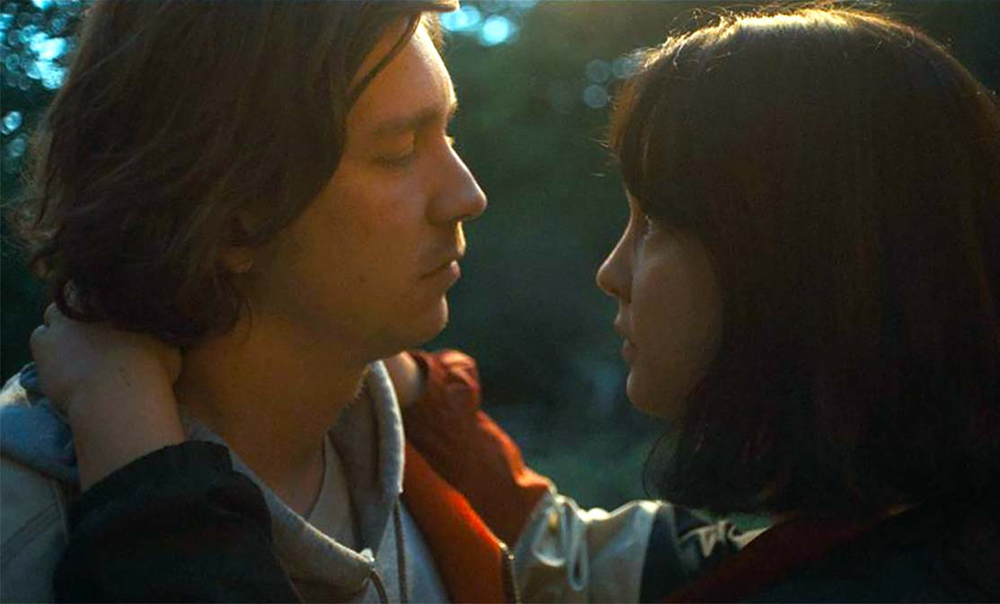You can understand why Ethan (Thomas Mann) would be confused by the mixed signals he’s receiving from Riley (Courtney Eaton) after the two meet at a bar in “Parachute,” a place she shouldn’t be after leaving a rehab facility, though her friend Casey (Francesca Reale) thinks it would be good for her. As Ethan confides, he’s not having the best day either, joking he’s just been let out of jail and as the two continue to banter with an equally dark sense of humor, the conversation leads the front door of her apartment where she wants him to know the two can only be friends since her treatment requires her to not engage in any romantic relationships for a year, yet nonetheless rips his clothes off before he can leave.
What willingness Riley has to bend the rules for better or worse is part of what makes “Parachute” such a lively drama when co-writers Becca Gleason and Brittany Snow, making her directorial debut here, see someone whose main enemy is herself as she battles body positivity issues. Offering as few details about her rehab as Riley seems to have taken away from it, the film catches her adrift upon leaving, adhering to what she was told when there seems to be an alternative benefit for herself in terms of being left alone by others, but not exactly sticking to the program as it suits her, flustering friends including Ethan, who personally might not want to be identified with that group when he’d have grander ambitions if she was in a more comfortable place in her life. She loves a good mystery, spending nights with Ethan watching true crime documentaries where she tries to guess the killer before they’re revealed, and “Parachute” isn’t shy about suggesting how she’s become one, withholding clues about how she feels about nearly anything to those closest to her.
“Parachute” impressively doesn’t feel uneven despite the fact it mirrors Riley’s mercurial personality, able to veer into light comedy when she’s with Ethan or taking a job at a dysfunctional dinner theater or get to the darker places it needs to go when Snow is interested in understanding how the psychological effects of such a preoccupation shapes her behavior. Although Riley can occasionally be seen excusing herself to go to the restroom, usually to pick herself apart in the mirror than indulge in any eating disorder, the film resists cliche and the additional expectation that the most famous names in the cast may appear in bit parts as favors to Snow for her first time behind the camera proves only half right when surely Dave Bautista and Gina Rodriguez wouldn’t be showing up for five minutes for many other filmmakers, but they are given unusually juicy supporting roles as Riley’s boss at the dinner theater and therapist, respectively. Joel McHale is also a standout, going against type and making the most of a few brief scenes as Ethan’s father, whose alcoholism can explain so much about his son’s patience with Riley as well as why their dynamic is ultimately untenable.
“Parachute” also seems bound to make a star out of Eaton, who can play the entire range of emotions that are asked of her, moving stealthily from winsome to ferocious depending on what the scene calls for. Snow throws just about everything at her and shows a real feel for managing multiple tones as Riley spirals out of control, experiencing as much exhilaration at times as fear. In a situation where the center will not hold, “Parachute” cuts to the core.
“Parachute” will screen at SXSW on March 16th at 2:30 pm at the Stateside Theatre.




